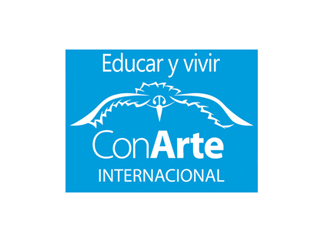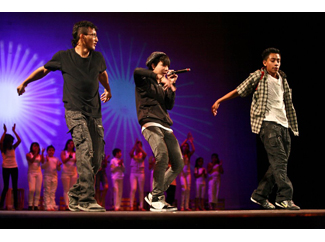consent_cookie
Duración: 1 year
Stores the user's cookie consent state
12-12-2013
The marginalization of the arts and culture in education has caused serious consequences throughout the years, experts say: learning disabilities, social exclusion or marginalization are some of them. To promote education through the arts in schools and communities ConArte International was born, the result of cooperation between the UNESCO Chair at the University of Girona and the Mexican Association ConArte.
Both organizations had worked together on previous occasions. The Youth in Action program, powered by Humana in South Africa, had its support to foster the cultural manifestations of more than 2,000 young people between 15 and 35 years with the aim of contributing to the socio- economic progress and better relations between their communities. His success was only a confirmation of the influence that the arts can have on the development of peoples.
Culture as the core of education
This initiative, promoted by ConArte Mexico has managed to incorporate culture as the core of peace education and social development in public school and in highly marginalized communities in the country of the Americas, whose borders are the United States and Central America. "The power of the arts can help us balance the planet. It is a long-term way, but with specific and immediate action," said Lucina Jiménez, director of ConArte.
Among the first actions of International ConArte emphasizes teacher training in arts and culture for cohesion, diversity and social inclusion the month of April 2014. " There is an international consensus that education is important , but not just find a way . This is the challenge for us. The latest idea is to reach the Spanish public school starting with pilot projects," says Gemma Carbo, a member of the UNESCO Chair in Cultural Policy and International Cooperation of the University of Girona.
ConArte International shall consist of leading experts in education and culture, heritage, art therapy, social projects, entrepreneurship and sustainability.
Cultural rights and human rights
"There are still those who think that the education system is created solely to generate workforce. Arts education has always moved in the margin. But thinking and feeling, mood and desire are essential to produce, for learning and for social change . When we talk about cultural rights, human rights talk "concludes Lucina Jimenez, who besides being director ConArte in Mexico, is a member bank of experts in culture and development of Unesco in Paris.


